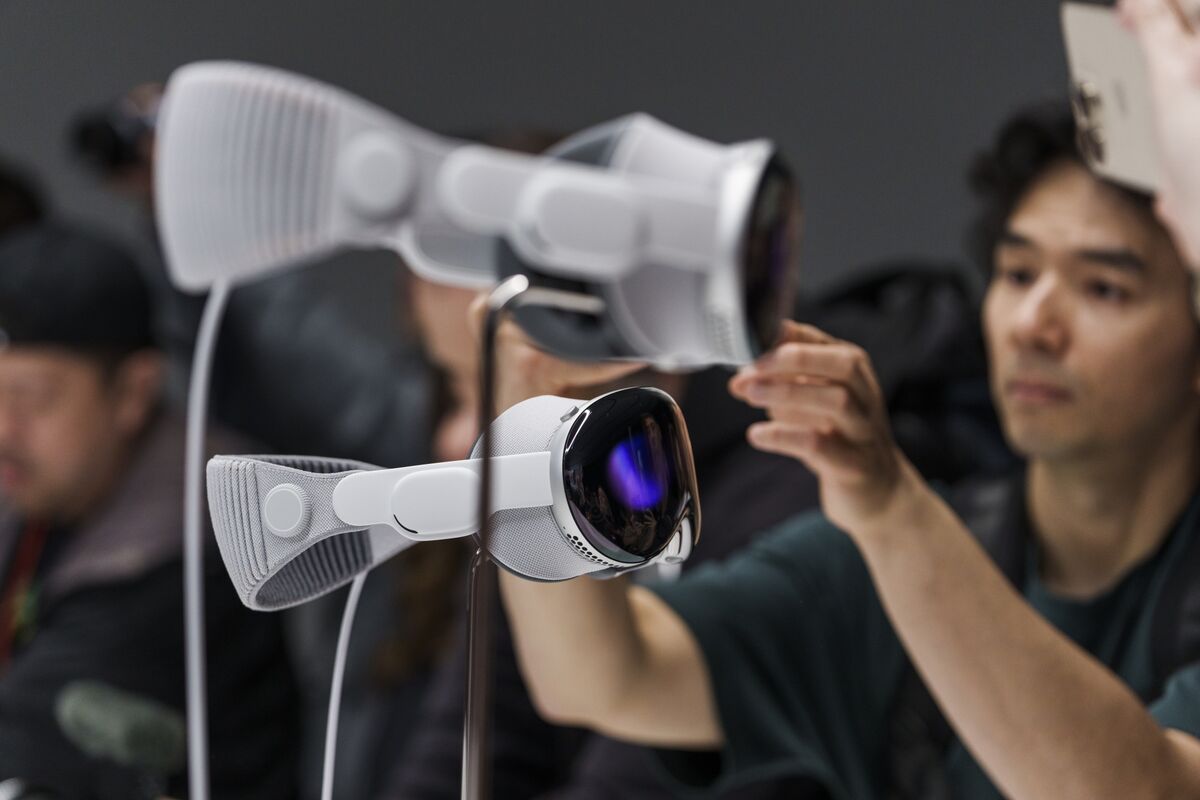YouTube said in a statement Thursday that it isn’t planning to launch a new app for the Apple Vision Pro, nor will it allow its longstanding iPad application to work on the device. YouTube, like Netflix, is recommending that customers use a web browser if they want to see its content: “YouTube users will be able to use YouTube in Safari on the Vision Pro at launch.”
I don’t have faith Google could even make a good app for the device considering the iPad YouTube app is janky as shit and it’s been on the platform for years.
deleted by creator
Since the Android tablet space has been garbage for the last decade, I would assume they’d have at least put in some work to make the iPad app pretty solid.
But I don’t disagree with what you are saying, really. However, if a janky iPad is what they think will make people jump to Android, I have a bridge to sell them.
By garbage you mean Lenovo can offer a fast tablet with hdr, high frame rate display, 2k res, proper pen included and useful desktop mode for less than an iPad? Sorry but iPad is no longer offering competitive product in the tablet space.
And yet, one of those sells significantly better than the other one.
Google’s core business is ultimately ad sales, and any way they can collect data on you to sell you ads, and the get you to look at those ads, is revenue for them. Sure they would be able to collect more data if they had full control over your device, but as long as you’re watching their ads at all they are making money.
deleted by creator
Yeah I agree. The web version is always available without the pretense of device-specific support, so until the platform is established there isn’t much of a motive.
So…you can use the web version and can block all of their trackers and cookies with Safari extensions. Seems like it would be smarter for them to have their own app and get that data but whatever.
That’s what I’ve been doing basically the moment safari extensions released. It’s not perfect, but it’s far superior to the YouTube app.
They’ll launch their apps if/when Apple Vision Pro gains more traction.
YouTube is probably the biggest one missing, but it works just as well via a browser. Netflix has a lot of stuff but it’s far from the only horse in town nowadays (and again, it should work fine via Safari). And Spotify is easily replaceable, as song availability is 99% identical between pretty much all music streaming services. People who want a Vision Pro will get it regardless of whether Spotify is available, and they’ll likely just switch to Apple Music if they want to listen to music with the headset.
Awesome. YouTube on Safari with an adblocker spares me all that ad bullshit on my iPad and iPhone and makes YouTube actually usable, also I never saw a big difference between safari and the shitty YouTube app in’s terms of usability and you have features from the app without having to pay for.
Why invest time and money for what will likely be a small user base
There’s a toggle button to allow the iPad versions of their apps to run on visionOS. It would take one person less than four minutes to allow it. Is it an amazing experience on Vision Pro? No, but it would be a good one at least.
It’s never that easy. There’s always platform specific bugs and weird edge cases, and that’s just going from phone to tablet which are pretty similar, this is even more different.
Yeah, I’m a developer, and I’m accustomed to it. There are similar AppleStore Connect toggles to get iPhone apps onto iPad or MacOS. But the problem isn’t how easy it is to enable. It’s the future support.
My product, design, eng and QA teams have been burned by this in the past. Someone clicks the toggle, it shows up on the store, and then we start getting tickets from an all new platform. Internal and external people start finding issues that were not a problem on the other platforms.
Moreover, Apple doesn’t allow take-backs. You can’t easily remove a platform from a universal app. If you want one binary, and you decide that a platform is costing you more than it’s making you, then you’re kind of screwed.
Veteran developers know this, and that’s probably why they held off. I would’ve done the same thing unless there was some sort of back-side business development or marketing deal that depended upon being on the platform.
Why invest into an ecosystem that will only ever have a tiny user population?
When succeeding versions release that don’t cause people to choke on the price, I’m sure that services will see fit to support those platforms in the future, if the user base is large enough.
Looks to be a disruptive device the others are scared of, otherwise they wouldn’t care.
Isn’t doing nothing to support the device not caring?
If you’ve worked with Apple’s universal apps, you know that it’s never truly free. Supporting the platform always brings new platform-specific bugs, platform-specific regression testing needs, product / design support for platform-specific experience quirks.
It’s going to be some amount of work, for an audience that will likely be small at first, on a platform that is already supported by the company’s web experience. IMHO “wait and see” is the prudent approach.
Just navigating their shitty submission process is a ton of work on its own.
Uh what? In what way would Spotify and Netflix be scared of this disruption?
Apple is a content producer now too and has much deeper pockets than their competition.
Why would the competition want people to buy into another cutting edge Apple product when they may want to develop their own solution to view their programming?
Your argument doesn’t make any sense. Spotify isn’t going to produce an AR headset and really doubt Netflix will either. It makes more sense for them to release apps for the device if they think it’s going to be successful.
You understand competitor right? They are content competitors, not hardware.
That’s my point. If they believe the hardware will be successful they would want to release apps for it that give them the ability to capture and retain customers. As it stands Apple headset users can only really consume Apple content. So it’s much more likely they just don’t believe in the product not that they’re scared.
You know they don’t need to develop custom apps right? They’ve even specifically disallowed their iPad app to run. That’s the action of a scared company.
No… that’s the decision of company who doesn’t want to invest in a new platform. They’d rather disable the app than support the users there.
Why would anyone want a Spotify app for this?
This is the sort of sentiment that shows how misunderstood this device is. No shade intended.
It’s not just a VR headset you play games in and watch movies in.
They are saying spatial computing because it’s a computer. Listening to music while you do other things is normal on a computer.
Fair point, but what would be beneficial about having an app vs just using the web browser?










